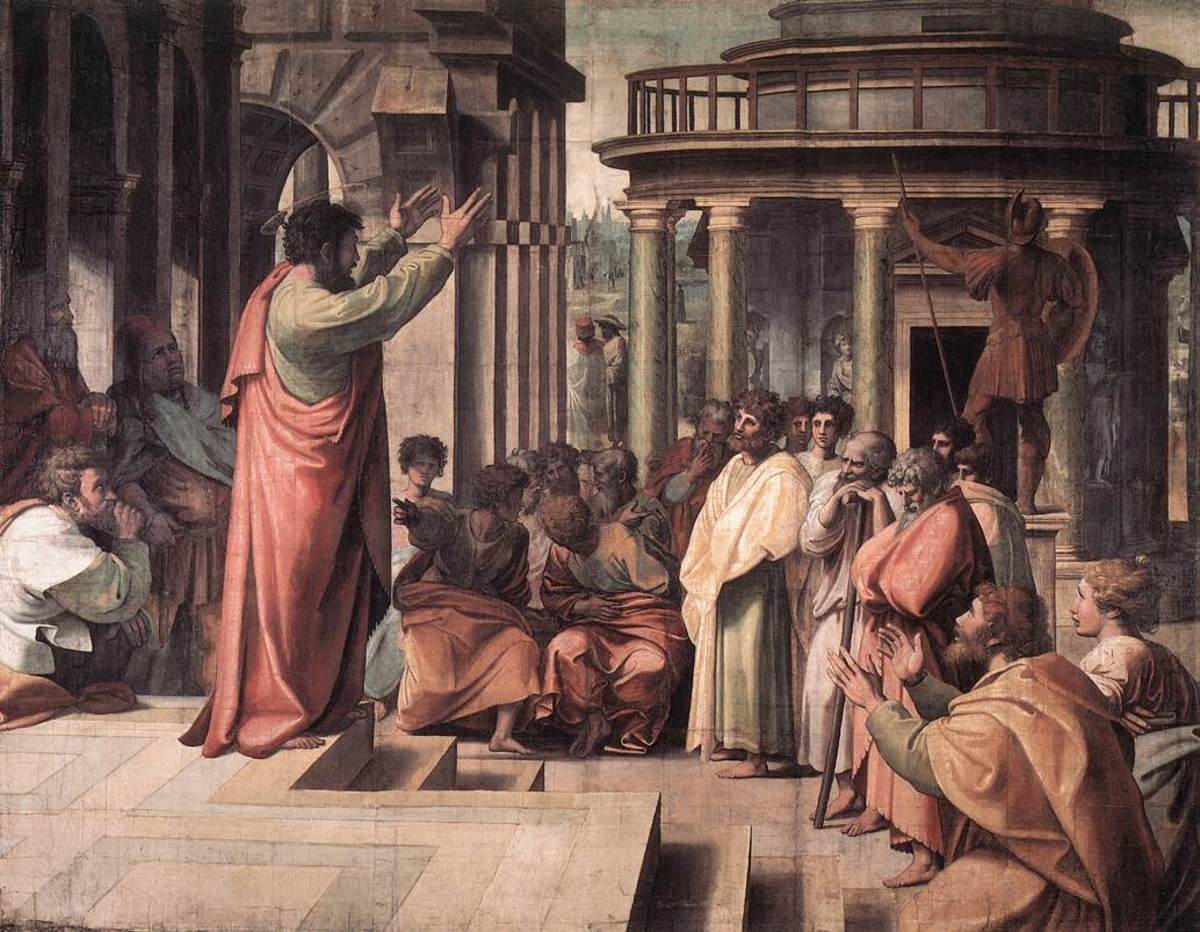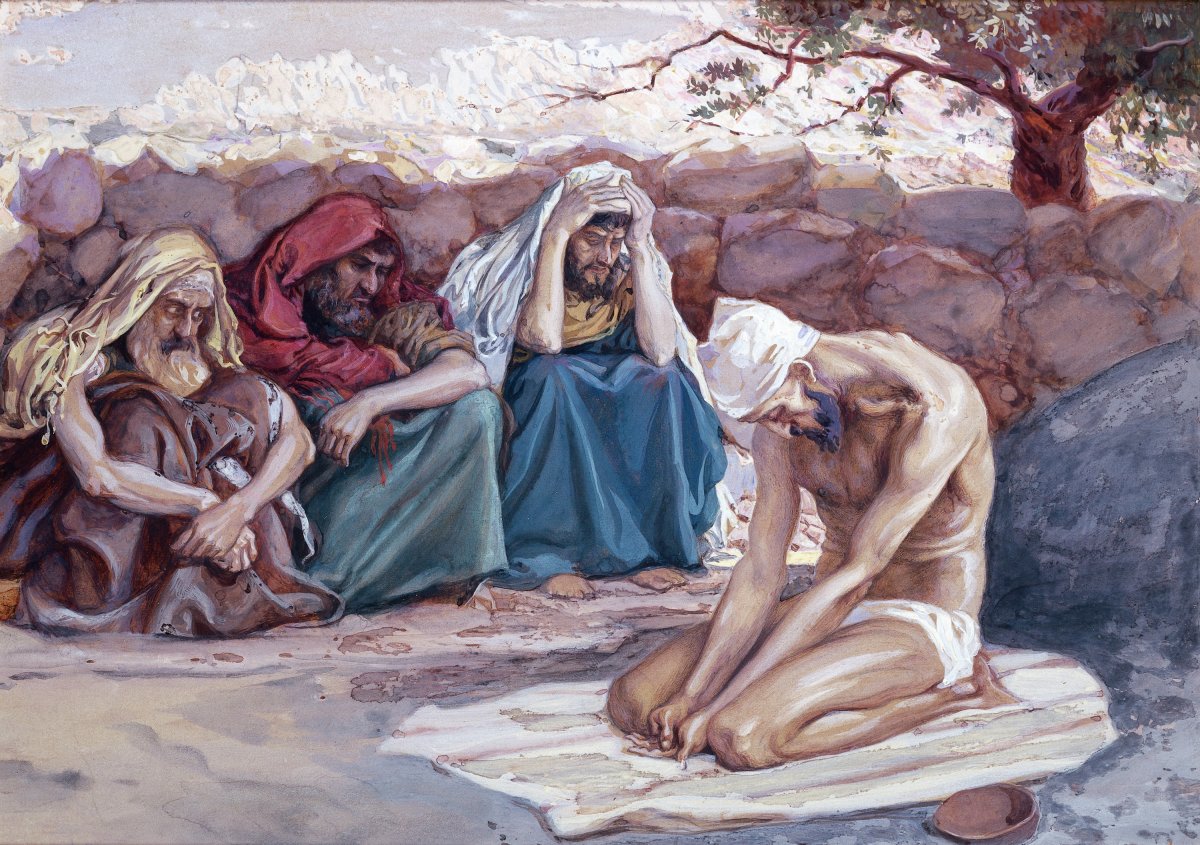Revelation 2 & 3: Which Church Are You?
Before the Apostle John was taken in the Spirit to record the future events of the Revelation, he was instructed to record our Lord’s first and only personal address to the Church (Revelation, Chapters 2 & 3): seven separate letters to seven specific churches that existed during John’s day.
- Ephesus
- Smyrna
- Pergamos
- Thyatira
- Sardis
- Philadelphia
- Laodicea
These were real churches with real issues and Jesus responded to an actual condition particular to that congregation; sometimes commendatory, sometimes critical; but adapted perfectly to the particular situation He discovered in each.
But they were not random selections. Jesus specifically addressed these seven churches because each had a condition representative of the church as a whole in all ages and continue to exist in all churches today. Their problems are our problems. The Lord therefore still speaks with a message as relevant for our churches and for each of us today as it was to those in the first century.
Jesus concludes each letter with a warning to the individual: “He who has an ear, let him hear what the Spirit says to the churches.” May we hear and heed what Christ, through the Spirit, says to us personally concerning these matters.
EPHESUS (2:1-7)
“Insincere”
Jesus applauds the works of the Ephesians. They labored hard to serve the church, persevered in their duties with patience, didn’t tolerate evil members, rejected false teachers and doctrines, and they did it gladly for His name’s sake without growing weary. “Nevertheless I have this against you, that you have left your first love."
Our Lord’s issue with Ephesus was clearly not the quantity or the quality of their works, for He emphasizes both a zeal and steadfastness. Instead, Jesus was identifying a departure from their earlier “first love”. Though this is not explained, because love for God and love for one another are the two greatest commandments, allow me to speculate what might have been happening.
Rather than a passionate desire to worship God as it was in the beginning, church attendance became an obligation or force of habit; and fellowship, once a fervent love for one another, became argumentative and divisive. In other words, that early love where we denied self, gladly abandoned all that displeases God, and joyfully embraced fellowship one with another had waned in Ephesus and the members were simply “going through the motions without emotion.”
In response, Jesus calls the Ephesians to remember, repent, and return to the place from where they had fallen otherwise He would remove their “lampstand” from its place and essentially put it “on the shelf”. That is, He would disqualify their service as a light-bearer to uphold and illuminate Him to the world and would no longer effectively use them for opportunities to shine the light of the gospel unto others.
As Christians, we are the light of the world; vessels empowered by the Holy Spirit to enlighten hearts with the true love and glory of God in His Son, Jesus Christ. When our hearts no longer abound in love, however, we quench the work of the Spirit and thereby render our witness and testimony inadequate to serve as a lamp to uphold Jesus, who is the light. May our worship, works and fellowship always flow from a pure heart genuinely in love with Jesus that we may present ourselves as a vessel sanctified and useful for God to proclaim His great love to those dwelling in darkness.
SMYRNA (2:8-11)
“Suffering”
The church at Smyrna is the Lord’s choice to illustrate the suffering church and its needs. As such, their message is one of comfort and the first of only two churches in these letters Jesus has only praise for.
Smyrna was under severe persecution from a malignant group of Jews that Jesus calls blasphemous members of the “synagogue of “Satan”—vile men falsely claiming to be Jews spiritually who were being used as instruments of the devil to vehemently oppose Christ and His Church.
Christians suffer persecution because the world hates God. Some are light afflictions like ridicule, false accusations, scorn, or perhaps the loss of friendships, while others are heavier afflictions of imprisonment and death such as our dear brothers and sisters in other parts of the world are enduring. God alone knows why the disparity. But the Sufferer surrounds all His suffering ones and none of us ever passes through any trial of unjust persecution or worldly contempt that He has not known, overcome, and has promised to see us through.
In response, Jesus calls for the members to not be afraid but to remain faithful throughout the affliction and torment and death. That by their patient endurance they would pass through the trials as He did and thereafter be rewarded with a crown of life and an everlasting joy in the world to come; never again to be hurt by the first death, or empowered by the second death.
As Christians, we will suffer in this life when we desire to live godly for Jesus because it has been granted on behalf of Christ, not only to believe in Him, but also to suffer for His sake. This seems strange because suffering is difficult. But our afflictions for Christ are gifts from God working for us a far more exceeding and internal weight of glory: the promise of joy unspeakable when His glory is revealed. Still, we never suffer alone. Our risen Lord stands with us and His Spirit covers us with sufficient grace. May we follow Jesus through suffering with patience, knowing God has appointed it for our blessing in anticipation of the eternal hope of glory He has laid up for us in heaven.
PERGAMOS (2:12-17)
“Compromising”
Jesus commends the church for holding fast to His name and maintaining a true faith in Him all the while surrounded by temples and shrines and innumerable idols in the darkest center of pagan abominations He refers to as “Satan’s seat.”
As with Ephesus, the issue Jesus had with Pergamos was not about their lack of steadfastness to His name. Jesus rebukes the congregation for permitting ungodly men with carnal doctrines into the church. Seemingly Pergamos had not yet embraced their teachings, but by harboring and giving a seat to these false teachers they allowed a spirit of compromise with evil and seductive practices taught by the world to infiltrate the church.
In response, Jesus calls for the congregation to repent for allowing false teachers to freely coexist in the church and influence other members into accepting their pagan practices. “Repent, or else I will come to you quickly and will fight against them with the sword of my mouth.” How this intervention would play out is uncertain, but the prospect of our Lord fighting members in the congregation with the same verbal sword which one day He will smite the nations should strike fear in the church.
The issue for Pergamos was thinking that the church has the authority to decide what is right or wrong rather than identifying with the person of Jesus Christ and recognizing that He has given us the Word of God through the Holy Spirit as our only authority. In other words, the congregation blindly permitted the presence of heretics based upon church allowances rather than searching the Scriptures themselves to “test the spirits” whether they were of God.
As Christians, we’re warned that many false prophets are in the world. We must therefore test every doctrine by the doctrinal truth taught by the Holy Spirit in the Word of God to expose beliefs taught by the spirit of this world. In fact, we’re guilty of compromise when we say nothing even though we aren’t practicing such things. We are the salt of the earth. May we always do the work of an evangelist when confronted by worldly philosophies and use the opportunity to preach the Word to convince, rebuke, and exhort with longsuffering and teaching those deceived by the lie, that in hearing they might believe the truth and be saved.
THYATIRA (2:18-29)
“Apostate”
Our Lord gives honorable mention of the works, charity, faith and patience in Thyatira, even emphasizing that their latter works had grown more impressive than their earlier works. Still, the congregation was far from a right relationship with the Son of God and is sternly rebuked.
Thyatira was found guilty of entrusting an evil and bewitching “prophetess” named Jezebel to influence and teach the congregation into mingling pagan practices and idolatry with Christian works and worship as if she had supernatural revelation and divine approval to impose it.
As such, Thyatira represents the apostate church evolved. It not only enabled a false system of heresy entrance into the church as did Pergamos, but exalted it by granting “that woman Jezebel” authority to publically introduce and beguile the congregation with her ungodly pagan rituals, idols, ceremonies and traditions.
Whether Jesus was identifying this woman by her actual name or merely pin-pointing a particular female member of the congregation who had been corrupting the church in the manner of the abominable ancient Queen Jezebel is unclear. Nonetheless some evil woman representative of a diabolical system did exist in Thyatira and is still very much influencing the Church today.
In response, Jesus levies a strong admonition of sickness against her and great tribulation and death against those unrepentant members who became converts and commit adultery with her. To those not holding to her doctrine He commands to hold fast with a cautionary warning not to let others wrest the truth away from them.
As Christians, we are unique because we proclaim one God, one Lord and Savior, Jesus Christ, and only one inspired revelation of God, the Bible. The world exalts diversity of belief and is content for everybody to have his own religious beliefs as if they all had equal merit—but Christianity is contrary to all of that! Christianity absolutely does not permit any part of the traditions, ceremonies, rituals or doctrines of any religious system to be mixed or mingled into it. Jesus is more than the man of history other religions acknowledge. He claimed to be God, was put to death for this claim, and His resurrection substantiated this claim. May we always rightly divide the word of truth to expose and openly reject any clergy, priest, theologian or religious organization that preaches any other gospel regardless how righteous and holy they appear.
SARDIS (3:1-6)
“Spiritually Dead”
The Sardis letter contains no approval of good works or condemnation for blatant wickedness, only a searing admonition that all the while they outwardly appeared as a church alive in Christ, inwardly there was no life; they were dead and in dire need of the quickening power of the Holy Spirit.
Seemingly Sardis had once been known as a strong, Christ-honoring church, so they still had a name as a church in Christ, a pastoral leadership, and evidently most members were “professing” Christians. But other than using His name and conducting church, they denied the realities of the doctrine of salvation and were not reborn of the Spirit. The sad truth is that they were unsaved members just going through the motions of pseudo-Christianity unaware they had not passed from death to life.
In response, Jesus calls upon the unsaved members to repent because they would not be found blameless at His Coming. To the few genuine believers who were truly saved, He calls worthy of eternal life.
Salvation is a gift of God by grace through faith, not the result of our good works or good behavior or our membership in a church. We must be born again. We must admit that we’re sinners willing to turn away from sin, believe that Jesus Christ died on the cross and resurrected again to achieve our salvation, and then ask Him to become our Lord and Savior. As we do, we are instantly “born again” from above and given a new nature and a new heart and a spiritual life sealed by the indwelling of His Spirit for the day of redemption. There is no other way; this is where eternal life begins.
As Christians, we became new creatures in Christ entirely different from what we were before by our new birth. We were spiritually reborn as a child of God into His family and by His Spirit God now lives within us. May we always be influenced and empowered to walk and live and be led by the Holy Spirit, for it is His Spirit that God has given us and to everyone that believeth.
PHILADELPHIA (3:7-13)
“Faithful”
This church was maintaining a faithful witness in the midst of general apostasy and unbelief and is commended for keeping the Word of the Lord and not denying His name and the letter is without any rebuke or suggestion of judgment.
Philadelphia was not found guilty of the sins practiced in Ephesus, Pergamos, Thyatira and Sardis. Their love was sincere, they tested the spirits to keep out false teachers, rightly divided the word to prevent mixing worldly philosophies with the true gospel, and they were born-again by the Holy Spirit. As such, they represent the persevering, spiritually awakened and faithful church that keeps His word and does not deny His deity or His completed work on the cross.
In response, Jesus promises to set before them an “open door, and no man can shut it”, and to keep them from “the hour of trial, which shall come upon the whole world, to test them that dwell upon the earth.” Both promises apply to the church as a whole in what I deem to be a significant way.
Our Lord’s first assurance is that He has set before it an “open door” to preach the gospel throughout the world as an instrument for salvation despite any attempt to prevent it. This, of course, has been the case for the Church from the beginning and explains why it has survived two thousand years of adversity and opposition and continues to spread the gospel throughout the world today.
The second is somewhat more controversial but I believe is one of the key verses supporting the doctrine of the rapture of the believing church. The “hour of trial which shall come upon the whole earth” refers to the future tribulation described by the prophets as seven years of calamity, chaos and judgment poured from the vials of God’s wrath unlike anything the world or man has ever experienced. This is a time of vengeful judgment. But given our Lord’s assurance to deliver Philadelphia from this coming hour, we must therefore conclude that genuine believers will be delivered by Christ Himself before the appointed wrath as He returns to take them by resurrection and rapture to be with Him.
As Christians, we’re deserving of nothing and yet have been given exceedingly great and precious promises. Let us remain steadfast to keep His Word and with patience and perseverance hold fast to the crown given us for our work of faith, labor of love, and patience of hope in our Lord Jesus Christ. We can be comforted to know that we may be caught up at any moment to meet the Lord in the air for Jesus says, “Behold, I come quickly!” Let us therefore watch and be sober that we need not be ashamed at His appearance. Let us be confident we have fought the good fight so we can boldly respond without any uncertainty, “Amen. Even so, come, Lord Jesus!”
LAODICEA (3:14-22)
“Lukewarm”
This is a strong rebuke against a church that allowed their wealth and financial well-being to blind them to the reality of their own spiritual depravity and contains no Godly praise or the mentioning of any good works and no indication that any member was above approach.
The issue for Laodicea was that they allowed worldly possessions and fascinations to dilute their burning desire for the Lord Jesus Christ until they became spiritually lukewarm—neither hot nor cold—neither fervent for God, nor bitterly opposed to God. But they had drifted so far away from an intimacy with God that they lacked the spiritual compass to recognize it. In their own worldly eyes they felt no need to change things because they were comfortable just as they were.
In response, Jesus calls for them to “wake up and see” the truth about the wretched and miserable state they were in because their condition was repugnant to Him and would lead to chastening. “I am about to spew you out of My mouth.” And yet, upon a church whose hearts had shut Jesus out, the risen Lord still yearns to restore fellowship with them. “Behold, I stand at the door, and knock.”
Unlike Sardis whom Jesus warned of judgment because they had not attained salvation, this is a plea from our heavenly Father to a “prodigal son” whom He loves and continues to pursue, but also will rebuke and discipline as a son in order to uncover and correct the problem. God alone knows what manner of chastening, but at the very least I believe they would no longer be partakers of the abundant life and fullness of joy promised to those who abide in Him, and He in them—at the very least they would lose the joy of their salvation and live sad spiritually unfulfilled lives.
As Christians, our fervent desire to know and draw closer to God more intimately can quickly cool by any circumstance that provides a sense of contentment. Wealth and prosperity, certainly, because money supplies material things without a need to call upon God; and over time, by devoting less time in prayer and supplication before God we simply connect with Him less. The issue however isn’t a satisfactory life style, for contentment with godliness is great gain because it’s finding joy in what God has given to us. The issue is when we take God out of the equation: feeling enriched enough with ourselves to devote less time in prayer and worship, reading the Word, exercising our spiritual gifts, and fellow-shipping with the saints. This is the danger zone—when we become satisfied spending less time with God rather than thirsting for more—this is what summons our Lord to beckon and discipline if necessary. May we continue earnestly praying for God to search our hearts and minds so He can reveal any wicked way in us that requires correction. He loved us so much that He gave His only begotten Son that we may have life and that eternally. How can we not but love Him with all our heart and with all our soul and with all our mind and strength?
"Now the God of peace, who brought up from the dead the great Shepherd of the sheep through the blood of the eternal covenant, even Jesus our Lord, equip you in every good thing to do His will, working in us that which is pleasing in His sight, through Jesus Christ, to whom be the glory forever and ever. Amen" - Hebrews 13:20-21
© 2015 James Kobzeff








